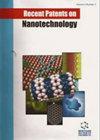生物质硬碳材料升级综述
IF 3.1
4区 材料科学
Q3 MATERIALS SCIENCE, MULTIDISCIPLINARY
引用次数: 0
摘要
:钠离子电池因其原材料资源丰富、价格低廉、比容量高而成为锂离子电池的替代品,前景广阔。无定形碳材料(硬碳)具有微孔和杂质,有利于钠离子插层形成 "准金属钠",从而具有高钠储存容量和低钠储存电位。因此,硬碳是研究最广泛的负极材料之一。它可以通过热化学转化从生物质中制备,具有比容量大、成本低、循环稳定性好和可再生等优点。本综述主要介绍生物质基硬碳材料的最新进展。首先,总结了硬碳的制备方法,包括前驱体的选择、预处理、干燥方法和碳化工艺。其次,研究了前驱体组成和杂原子掺杂结构对硬碳性能的影响,讨论了活化过程中碳材料孔隙的变化,以及最佳干燥方法、热解温度、碳化温度、活化剂用量和添加剂的选择。第三,简要总结了制备方法对硬质碳成本、效率和稳定性的影响,并提出了相关的改进措施和展望。最后,对制备用于钠离子电池的高性能生物质基负极材料提出了一些见解。本文章由计算机程序翻译,如有差异,请以英文原文为准。
A Review on the Upgradation of Biomass-derived Hard Carbon Materials
: Sodium-ion battery is a promising alternative to lithium-ion battery because of its abundant raw material resources, low price, and high specific capacity. Amorphous carbon materials (hard carbon) have micropores and impurities, facilitating the intercalation of sodium ions to form "quasi-metallic sodium," resulting in a high sodium storage capacity and a low sodium storage potential. Consequently, hard carbon is one of the most widely studied negative electrode materials. It can be prepared from biomass by thermochemical conversion and has the advantages of large specific capacity, low cost, good cycling stability, and renewability. This review focuses on the recent advances in biomass-based hard carbon materials. Firstly, the preparation methods of hard carbon, including precursor selection, pretreatment, drying methods, and carbonization processes, are summarized. Secondly, the effects of precursor composition and heteroatom doping structure and properties of hard carbon are examined, and the changes in carbon material pores during the activation process, as well as the selection of optimal drying method, pyrolysis temperature, carbonization temperature, activator dosage, and additive, are discussed. Thirdly, the impact of preparation methods on hard carbon's cost, efficiency, and stability is briefly summarized, and the relevant improvement measures and prospects are proposed. Finally, some insights are provided into preparing highperformance biomass-based anode materials for sodium-ion batteries.
求助全文
通过发布文献求助,成功后即可免费获取论文全文。
去求助
来源期刊

Recent Patents on Nanotechnology
NANOSCIENCE & NANOTECHNOLOGY-MATERIALS SCIENCE, MULTIDISCIPLINARY
CiteScore
4.70
自引率
10.00%
发文量
50
审稿时长
3 months
期刊介绍:
Recent Patents on Nanotechnology publishes full-length/mini reviews and research articles that reflect or deal with studies in relation to a patent, application of reported patents in a study, discussion of comparison of results regarding application of a given patent, etc., and also guest edited thematic issues on recent patents in the field of nanotechnology. A selection of important and recent patents on nanotechnology is also included in the journal. The journal is essential reading for all researchers involved in nanotechnology.
 求助内容:
求助内容: 应助结果提醒方式:
应助结果提醒方式:


